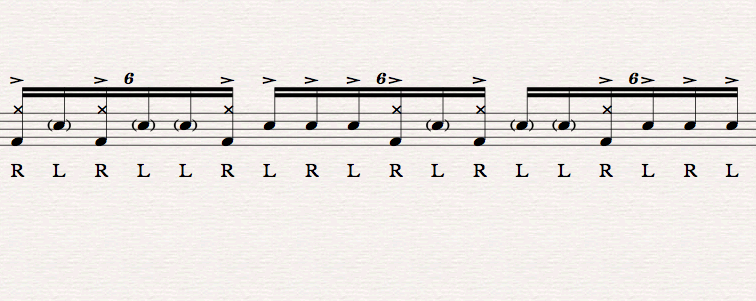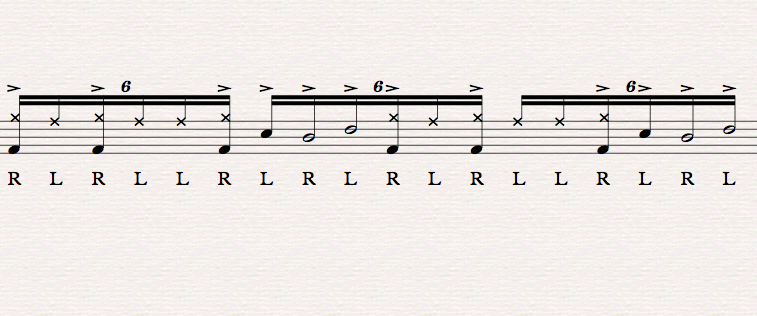ONE THING IS CERTAIN...
No matter what path you end up on, it will not always be a smooth trip. You WILL hit road-blocks from time to time… guaranteed! What actually matters is not the actual road-blocks themselves, but what we do about them.
When you've hit a road-block, does the train grind to a halt or do you find a way to keep it moving?
I was recently listening to one of my favorite podcasts, “The Tim Ferriss Show,” and in one particular episode, Tim was offering some advice for what he tries to do when hitting various “road-blocks," the moments where you seem to find yourself banging your head against the wall trying to solve a problem that seems impossible.
His advice? When facing a road-block, Tim simply asks himself the following question:
“What would this look like if it were easy?"
Asking yourself this one, single question acts as an incredibly powerful tool for solving problems, reducing stress, and getting past the various road-blocks we face.
What is it about this question that is so powerful? By imagining the easiest possible scenario first, we often forget about the problem and instead focus on the solution. By imagining an easy scenario, we’re forced to eliminate complexity. It then becomes quite clear which things need to be changed, added, or removed.
In this article, I’ll provide 2 practical examples of “road-blocks” that a musician might face, and how we can use Tim’s strategy to completely eliminate them.
EXAMPLE 1 - THE LAST-MINUTE GIG
Let’s say you get a call from a band-leader who got your contact information through a mutual musician friend. He explains to you that the drummer in their band is sick and they need a fill-in drummer who can play their entire 30 song catalog, without a rehearsal.
"The gig is in 2 days and pays $400... can you do it?"
Normally, you’d have no problem playing a gig like this because you know how to write out quick charts that you can use on the gig. But, there’s just one problem... you’re completely swamped over the next 2 days and won’t have any time to write out the charts. You’ve hit a roadblock.
Most people, at this point, would turn down the gig.
But what if you stopped and asked yourself: “What would this look like if it were easy?"
Well... if this were easy, the charts would already exist; you could just sight read them on the gig. Because you know how to sight-read charts at a high-level, you’d be able to accept and play the gig.
So, working backwards, how do we use charts on the gig if we’re not able to make them ourselves? Here’s a solid solution: Hire a drummer friend to write out the charts for you and give them part of your pay for the gig. Explain that it would be an easy way for your friend to learn some tunes, they could keep these 30 charts for their own use whenever needed, all while making some cash… not to mention that they would be helping you out tremendously. Everybody wins. You get to play the gig and your friend makes some money out of the process.
Now, let’s take a look at what just happened here. If you’d just stopped at the road-block (in this case, not having enough time to prepare), you would have turned the gig down, missed out on potential income, and also missed out on opportunities for future work with that band. However, because you worked backwards imagining the easiest scenario possible first, you found a way to eliminate the roadblock. You were thus able to play the gig, make some money (for both you and your friend), all while creating the opportunity for future work with that band! How’s that for problem-solving?
EXAMPLE 2 - THE TOURING MUSICIAN’S HOME
Let’s say you’re a “hired gun,” making your living playing with a number of different bands. You might be hired for several days at a time up to several months on tour. Travel becomes a huge part of this nomadic lifestyle you’ve chosen, which is great! The problem is, when you’re NOT out on tour, you suddenly don’t have a place to live... You want to live in a house/apartment and feel like a “normal person," but it doesn’t necessarily make financial sense to sign a lease or enter into contracts with various utilities like water/cable/internet when you might need to leave town at a moment’s notice. You don’t want to crash on couches, but you also don’t want to be forced into renting a place that you may only live at for a few months each year. We’ve hit another road-block.
Again, we need to turn to our trusty question: “What would this look like if it were easy?"
If housing for traveling musicians were EASY, you wouldn’t have ANY signed leases or contracts. The place you stay would always be furnished (eliminating the need for “moving") You wouldn’t have to pay utilities, and you would easily be able to pack up and leave for a gig without losing money renting a place that you aren’t occupying. You only pay for the days you actually live there.
The solution: Use a service like AirBNB, where you simply pick the days you’d like to stay. When you need to leave town for a gig, simply place all your belongings into storage.
See what we did here? Because we first imagined the easiest possible outcome, it allowed us to work backwards to find a way to get past the housing road-block.
*Side Note: This solution is precisely what I’ve been doing for over a year now. Living through AirBnb has saved me thousands of dollars annually, and has also allowed me to see more of the world in between gigs. I used to need to fly home between gigs, but with the AirBnb solution, I simply choose where it makes the most sense to live next. For example, last year I had an entire week off between gigs and decided to stay in New Orleans, a place I had always wanted to visit. If I had been paying a monthly rent check to a landlord, this kind of one-week trip would not have made financial sense. The AirBnb solution allows me to see the world while actually SAVING money... It’s bonkers!
SUMMARY
To recap, when we face the inevitable road-blocks of life, the best way to keep moving is to first imagine the easiest possible scenario (“What would this look like if it were easy?”), and then work backwards until you come up with a solution for how to make that scenario become a reality.
YOUR ACTION STEPS THIS WEEK:
1) Take an assessment of any major “road-blocks” in your life: What are the things you encounter regularly that seem be more difficult, inconvenient, or inefficient than they should be?
2) For each of these road-blocks, ask yourself “What would this look like if it were easy?"
3) Once you’ve created the ideal scenario in your mind, work backwards and decide which specific actions will allow you to turn this imagined outcome into a reality.
4) Take action.
100 RULES FOR DRUMMERS
Thanks so much for reading this week's article! Each week, I select one person from "100 RULES FOR DRUMMERS” and write an article based on the three-word rule they offered. My goal is to provide questions, thought experiments, and specific action steps you can take in order to improve both your DRUMMING and LIFE!
If you personally found this article helpful, please pay it forward by sharing it with just one person in your life that you think would become inspired from reading it!
Subscribe to 100 RULES FOR DRUMMERS by clicking HERE.
If you have any questions, comments, or feedback, I’d LOVE to hear from you! Please feel free to reach out anytime using the comments section below or by emailing me at steve@stevesuchdrums.com
Thanks,
-Steve
ABOUT TIM LEFEBVRE
Thank you to Tim Lefebvre for offering his 3 words of advice to drummers (KEEP IT MOVING) and for inspiring me to write this week's article!
Rocketing between New York and Los Angeles, Tim Lefebvre is quickly carving out a bold and progressive vision of what a contemporary bassist can and should be. Fashioning a leadership role in avant-garde jazz and funk circles, Tim is also a capable and reliable sideman routinely called upon by today’s leading innovators from across the musical spectrum including: Tedeschi Trucks Band (his full-time gig), Chris Botti, Toto, Sting, Uri Caine, Dave Binney, Donny McCaslin, Mark Giuliana and Donald Fagen.
A native of Foxboro, Massachusetts, Tim majored in both political science and economics before earning his gigging stripes, on of all places, a cruise ship, thankfully not the Carnival “Triumph.”
Once back in port, Tim dove headlong into New York’s burgeoning underground live electronica and jazz scenes, exposing himself to some of the city's most progressive players including drummer Zach Danziger and the legendary guitarist and former Steely Dan sessions player Wayne Krantz.
As word spread that a funky new bassist was in town, bridging the gap between James Jamerson’s signature strut and an emerging live-tronica sound, Tim’s opportunities grew. Furiously incorporating the dictates of the avant-garde with a more mainstream and commercially viable sound, Tim emerged from this formative period with a singular style and a trajectory for evolution that has yet to lose steam.
Tim’s career began to skyrocket when he subbed in Saturday Night Live’s house band, quickly catching the eye of television and film executives, soon landing playing and writing roles for shows such as “The Sopranos,” “30 Rock,” “The Apprentice,” and “The Late Show with David Letterman.”
It wasn’t long before Hollywood came calling. Tim performed on a number of movie soundtracks including "Oceans 12," "The Departed,“ “Analyze That!” while composing music for “Harold and Kumar Go To White Castle,” “Please Give” and commercials for Microsoft and Chevrolet.
Tim’s good fortune, open mind and willingness to play with anyone and everyone has supercharged his development enabling him to play with genius talents such as the guitarist Wayne Krantz, the neo-classical jazz pianist Uri Caine and scores of other. A recent domestic and European tour with ferocious post-bop saxophonist Donny McCaslin cemented Tim’s status as one of the industry’s most sought-after rhythm partners. Recently he recorded a record with Germany's Michael Wollny ("Weltentraum" ACT music and vision) that was awarded the ECHO trophy for Best Jazz Record of 2014.
He is Endorsed by Moollon Guitars, Callow Hill Guitars, MXR + Jim Dunlop Efx, Ableton Live, TC Electronics, Izotope, M Audio, Ampeg, and DR Strings.
Appearances with/recorded with Leon Russell, Chris Robinson, RIta Coolidge, Taj Mahal, TOTO, Empire of the Sun, Jon Batiste and Stay Human, Chaka Khan, David Hidalgo, Emmy Rossum, Nick Cave & Warren Ellis, AR Rahman, , Corinne Bailey Rae, Allessandro Amoroso, JOVANOTTI, Donald Fagen, Roseanne Cash,Till Broenner, Patti Austin, Mark Isham, Draco Rosa, Tony Orlando, Donny Osmond, Neil Diamond, Barry Manilow, Andy Garcia, Anthony Hamilton, Bette Midler, Drew Barrymore, Snoop Dogg, Jim Belushi, David Holmes, Pati Yang, Paula Cole, Melissa Errico, Jon Spencer Blues Explosion, Larry Carlton, Deborah Gibson, Abe Laboriel, Jr., Karsh Kale, Russell Ferrante, KT Tunstall, Tenacious D, Jill Sobule, Hildegard Knef, Andy Snitzer, Bob James, David Ryan Harris, Mark Whitfield, Dr. John, Warren Haynes, Chuck Loeb, Les McCann, Bill Frisell, Chris Potter’s Underground, Arif Marden, David Cassidy, David Johanssen & The Harry Smith’s, M People, Donny McCaslin, Philippe Saisse, Les McCann, Bill Frisell, Angelique Kidjo, Chuck Loeb, Jon Pousette-Dart, Kneebody, Larry John MacNally, Jim Beard, Steve Coleman, Chieli Minucci & Special EFX, Mitch Forman, Eddie Daniels, Tim Berne, Brian Blade, and Jim Black













